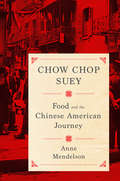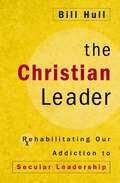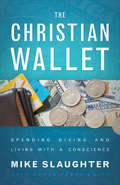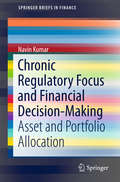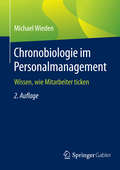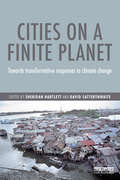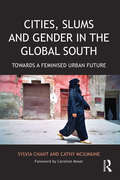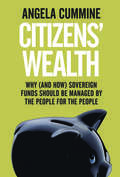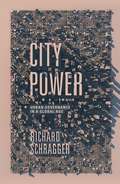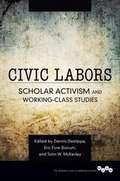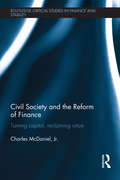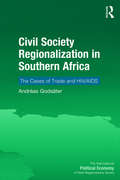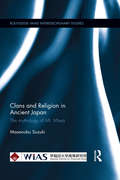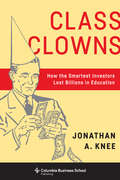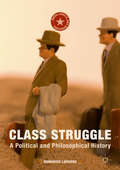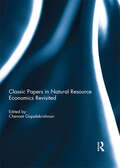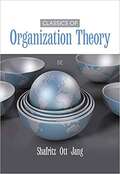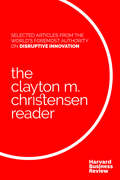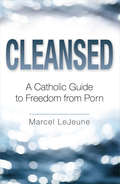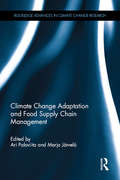- Table View
- List View
chotuKool: "Little Cool," Big Opportunity
by Efosa Ojomo Rory McDonald Derek C.M. van BeverIn 2013, a team led by Gopalan Sunderraman, vice president of corporate development at Godrej & Boyce Mfg. Co. Ltd.-one of the companies owned by Godrej Group, a large Indian conglomerate-was preparing to launch an innovative low-cost refrigerator. Developed expressly for the approximately 80% of Indians who lacked access to refrigeration (a market Godrej had never before targeted), the chotuKool represented a technological marvel-a small, inexpensive thermoelectric appliance powered by a rechargeable battery. The case traces chotuKool's development and evolution from an initial product concept inspired by theories of innovation and the strategic vision of Jamshyd Godrej (managing director and chairman at Godrej & Boyce Mfg.) to a promising new line of business that emerged from a process of learning and discovery through market feedback. As the company geared up for the broader rollout of chotuKool, Sunderraman and his team faced some tough questions. What was the proper target and scope for the launch? Which strategy gave them the best chance of success? Could chotuKool really redefine the company and bring refrigeration to hundreds of millions of Indians?
Chow Chop Suey: Food and the Chinese American Journey (Arts and Traditions of the Table: Perspectives on Culinary History)
by Anne MendelsonChinese food first became popular in America under the shadow of violence against Chinese aliens, a despised racial minority ineligible for United States citizenship. The founding of late-nineteenth-century "chop suey" restaurants that pitched an altered version of Cantonese cuisine to white patrons despite a virulently anti-Chinese climate is one of several pivotal events in Anne Mendelson's thoughtful history of American Chinese food. Chow Chop Suey uses cooking to trace different stages of the Chinese community's footing in the larger white society.Mendelson begins with the arrival of men from the poorest district of Canton Province during the Gold Rush. She describes the formation of American Chinatowns and examines the curious racial dynamic underlying the purposeful invention of hybridized Chinese American food, historically prepared by Cantonese-descended cooks for whites incapable of grasping Chinese culinary principles. Mendelson then follows the eventual abolition of anti-Chinese immigration laws and the many demographic changes that transformed the face of Chinese cooking in America during and after the Cold War. Mendelson concludes with the post-1965 arrival of Chinese immigrants from Taiwan, Southeast Asia, and many regions of mainland China. As she shows, they have immeasurably enriched Chinese cooking in America but tend to form comparatively self-sufficient enclaves in which they, unlike their predecessors, are not dependent on cooking for a white clientele.
The Christian Leader: Rehabilitating Our Addiction to Secular Leadership
by Bill Hull Robby Gallaty<P>From the author of the best-selling book The Disciple-Making Pastor comes a call to Christian leaders to let go of their addiction to secular models of leadership rooted in pragmatic success.<P> Most leadership literature talks about having the “right kind” of leadership personality.<P> You know the type: big-picture visionaries who serve others and get the best out of people.<P> But the popular pattern of doing what works and getting rewarded for it is actually the enemy of Christian leadership. <P>It thrives on making our work impersonal and exploitive.<P> Far too often, it serves the leader rather than those the leader leads.<P> Sadly, this pattern dominates Christian leadership in the West.<P> We need a different style of leadership — one patterned after Jesus. Jesus influenced others because of who he was, not because he was well-known or a person of power or because he had mastered a set of skills or implemented an effective leadership strategy.<P> He could have completed his mission living in your house, driving your car, married to your spouse, working at your office, and raising your kids because leadership comes down to character.<P> Many who aspire to leadership are looking for the right circumstances so they can lead. <P>Many in positions of leadership find it difficult to lead because of obstacles, such as a lack of funds, authority, and or confusion about methods. Jesus faced all of these — and more — yet he accomplished his mission.<P> This is not a book about improving Christian organizations; it is about changing how Christians lead.<P> It is for anyone with a megaphone, a platform to speak, who wants to lead others in being a witness for truth. It is for people with a pulpit, whether that pulpit be a business or a position of influence in a domain of the culture: entertainment, sports, politics, industry, the arts, academia, or religion.<P> If you are someone to whom others listen— this book is for you.<P> Each chapter begins with a title and statement about Jesus’ life. <P>Jesus was a different kind of teacher.<P> The Pharisees focused on doing the right thing. Jesus emphasized becoming the kind of person who wants to do the right thing. <P>Others taught the importance of doing good; Jesus taught how to be good. <P>He didn’t teach behavior modification alone; he taught how to change the sources of behavior.<P> Knowing how to lead others begins by seeing Jesus as your leader.
The Christian Wallet: Spending, Giving, And Living With A Conscience
by Mike SlaughterEvery Christian knows that we are called to love God with all our heart, mind, soul, and strength. But what about our wallet? We are asked to open it every Sunday when the offering basket comes by and are told that giving is a way of being a "good steward," but what about spending money at a restaurant or grocery store? Best-selling author Mike Slaughter offers a comprehensive look at how Christians use their money in The Christian Wallet. Slaughter explores today's culture of consumerism and the impact of what we buy, asking difficult questions about morality and money.The Christian Wallet helps Christians grapple with important questions about stewardship: how we spend, how we live, how we save, how we give, and what it all means. Questions for individual or group study are also included with each chapter.
Chronic Regulatory Focus and Financial Decision-Making: Asset and Portfolio Allocation (SpringerBriefs in Finance)
by Navin KumarIn this book, the relationship between financial decision-making and chronic regulatory focus is explored to provide a better understanding of consumer decisions. Financial decisions are modelled on the basis of assets and portfolios sensitive to particular regulatory foci. Studies in the book test whether participants select assets/portfolios that conform to their respective foci. In addition, given that gender, age and education can shape financial decisions, further hypotheses are put forth to explore whether these are related to asset and portfolio selection and regulatory focus. As consumers tend to make financial decisions prior to priming, this book diverts from previous research involving primed states of regulatory focus and instead explores the chronic state. The study employs two complementary instruments, the eye tracker and self-report, to explicate the hypotheses. As the main hypotheses were not supported, the author posits that the harsh worldwide financial climate may have acted as an external influence, moving participants to select assets and portfolios not aligned with their foci. This study marks a valuable contribution to the current literature concerning financial decision-making, the underlying motivational systems and external influences, and will promote further research in these areas. It offers an essential resource for academics and students interested in how regulatory focus interacts with financial decisions and the overarching economic climate.
Chronobiologie im Personalmanagement: Wissen, wie Mitarbeiter ticken
by Michael WiedenDieses Fachbuch zeigt Wege auf, wie innovative Führungsansätze zu neuer Produktivität und einer Win-win-Situation für alle Beteiligten führen können. Gegenüber der ersten Auflage wird in dieser zweiten, inhaltlich erweiterten Auflage das große Potenzial, das in der Nutzung der Erkenntnisse aus der Chronobiologie liegt, intensiver beleuchtet. Michael Wieden erläutert, wie sich mit dem Wissen um das Ticken der genetisch bedingten inneren Uhr das Wesen des Arbeitens, dessen Wert, aber auch das Verständnis von Lebensqualität in den kommenden Jahrzehnten nachhaltig verändern werden und alle Prozessbeteiligten davon profitieren können.
Cities and Spaces of Leadership: A Geographical Perspective (International Political Economy Series)
by Cristina D'Alessandro Frannie LéautierCristina D'Alessandro and Frannie Léautier investigate the interaction between leaders and the various spaces and places in which they work and live. Rooting their work in a critical understanding of the global contemporary world, they combine human geography and leadership theories throughout the book. Referring to the trajectories of global leaders, Cities and Spaces of Leadership is a unique and unprecedented achievement that should be read by geographers, leaders, and academics concerned by contemporary social, political and economic dynamics.
Cities on a Finite Planet: Towards transformative responses to climate change
by Sheridan Bartlett David SatterthwaiteCities on a Finite Planet: Transformative responses to climate change shows how cities can combine high quality living conditions, resilience to climate change, disaster risk reduction and contributions to mitigation/low carbon development. It also covers the current and potential contribution of cities to avoiding dangerous climate change and is the first book with an in-depth coverage of how cities and their governments, citizens and civil society organizations can combine these different agendas, based on careful city-level analyses. The foundation for the book is detailed city case studies on Bangalore, Bangkok, Dar es Salaam, Durban, London, Manizales, Mexico City, New York and Rosario. Each of these was led by authors who contributed to the IPCC’s Fifth Assessment and are thus acknowledged as among the world’s top specialists in this field. This book highlights where there is innovation and progress in cities and how this was achieved. Also where there is little progress and no action and where there is no capacity to act. It also assesses the extent to which cities can address the Sustainable Development Goals within commitments to also dramatically reduce greenhouse gas emissions. In this, it highlights how much progress on these different agendas depends on local governments and their capacities to work with their low-income populations.
Cities, Slums and Gender in the Global South: Towards a feminised urban future (Regions And Cities Ser.)
by Sylvia Chant Cathy McIlwaineDeveloping regions are set to account for the vast majority of future urban growth, and women and girls will become the majority inhabitants of these locations in the Global South. This is one of the first books to detail the challenges facing poorer segments of the female population who commonly reside in ‘slums’. It explores the variegated disadvantages of urban poverty and slum-dwelling from a gender perspective. This book revolves around conceptualisation of the ‘gender-urban-slum interface’ which explains key elements to understanding women’s experiences in slum environments. It has a specific focus on the ways in which gender inequalities are can be entrenched but also alleviated. Included is a review of the demographic factors which are increasingly making cities everywhere ‘feminised spaces’, such as increased rural-urban migration among women, demographic ageing, and rising proportions of female-headed households in urban areas. Discussions focus in particular on education, paid and unpaid work, access to land, property and urban services, violence, intra-urban mobility, and political participation and representation. This book will be of use to researchers and professionals concerned with gender and development, urbanisation and rural-urban migration.
Citizens' Wealth: Why (and How) Sovereign Funds Should be Managed by the People for the People
by Angela CummineA wide-ranging analysis of a powerful but controversial new economic tool that has rapidly eclipsed the size of the hedge fund market In 2006, Chile teemed with protesters after finance minister Andrés Velasco invested budget surpluses from the nation's historic copper boom in two Sovereign Wealth Funds. A year later, when prices plummeted and unemployment soared, Chile's government was able to stimulate recovery by drawing on the funds. State-owned investment vehicles that hold public funds in a wide range of assets, Sovereign Wealth Funds enable governments to access an unprecedented degree of wealth. Consequently, more countries are seeking to establish them. Looking at Chile, China, Australia, Singapore, and numerous other examples, including a comparative analysis of Britain and Norway's use of oil revenues, Angela Cummine tackles the key ethical questions surrounding their use, including: To whom does the wealth belong? How should the funds be managed, invested, and distributed? With sovereign funds--and media attention--continuing to grow, this is an invaluable look at a hotly debated economic issue.
City Power: Urban Governance in a Global Age
by Richard SchraggerReigning theories of urban power suggest that in a world dominated by footloose transnational capital, cities have little capacity to effect social change. In City Power, Richard C. Schragger challenges the existing assumptions, arguing that cities can govern, but only if we let them. In the past decade, city leaders across the country have raised the minimum wage, expanded social services, and engaged in social welfare redistribution. These cities have not suffered capital flight. In fact, many are experiencing an economic renaissance. Schragger argues that city policies are not limited by the demands of mobile capital, but instead by constitutional restraints serving the interests of state and federal officials. Maintaining weak cities is a political choice. In this new era of global capital, the power of cities is more relevant to citizen well-being than ever before. A dynamic vision of city politics for our new urban age, City Power reveals how cities can govern despite these constitutional limits - and why we should want them to.
Civic Labors: Scholar Activism and Working-Class Studies
by John W. Mckerley Dennis A. Deslippe Eric Fure-SlocumLabor studies scholars and working-class historians have long worked at the crossroads of academia and activism. The essays in this collection examine the challenges and opportunities for engaged scholarship in the United States and abroad. A diverse roster of contributors discuss how participation in current labor and social struggles guides their campus and community organizing, public history initiatives, teaching, mentoring, and other activities. They also explore the role of research and scholarship in social change, while acknowledging that intellectual labor complements but never replaces collective action and movement building. Contributors: Kristen Anderson, Daniel E. Atkinson, James R. Barrett, Susan Roth Breitzer, Susan Chandler, Sam Davies, Dennis Deslippe, Eric Fure-Slocum, Colin Gordon, Michael Innis-Jiménez, Stephanie Luce, Joseph A. McCartin, John W. McKerley, Matthew M. Mettler, Stephen Meyer, David Montgomery, Kim E. Nielsen, Peter Rachleff, Ralph Scharnau, Jennifer Sherer, Shelton Stromquist, Emily E. LB. Twarog, and John Williams-Searle.
Civil Society and the Reform of Finance: Taming Capital, Reclaiming Virtue (Routledge Critical Studies in Finance and Stability)
by Charles McDaniel, Jr.Efforts to resolve the recent financial crisis have obscured a more deeply rooted financialization crisis that impacts not only the market economy but also the vital civic and moral traditions that support it. This book reveals the cultural influence of finance in reshaping the foundations of American civil society and proposes a return to certain "first principles" of the Republic to restore the nation’s economic vision. This book demonstrates how funding concerns and financial incentives "revalue" faith traditions, educational institutions, non-profit organizations, and even the nation’s healthcare system in ways that are eroding the diversity of American culture. These changes also undermine the ethical framework of both democratic government and the free-market system. While financial influence has diminished the value of civil society, this book proposes that revitalized intermediary institutions still offer the best path forward in restoring the financial sector and, more broadly, enriching the American competitive ethic toward development of a more virtuous economy. The book is written for an academic and professional audience, offering a blueprint for the involvement of civil society with government in providing more communally integrated oversight that could contribute to a genuine democratization of finance.
Civil Society Regionalization in Southern Africa: The Cases of Trade and HIV/AIDS (The International Political Economy of New Regionalisms Series)
by Andréas GodsäterThis book investigates civil society regionalization in Southern Africa. The point of departure is the study of 'new regionalism', which refers to the wave of regional integration globally since the 1980s. However, whilst the current regionalism studies undoubtedly contributes to a deeper understanding of regional processes, important gaps remain, in particular the relatively scant emphasis given to civil society. This particularly relates to regions in the global South, including Southern Africa. The overarching aim of this book is therefore to analyse the dynamics of civil society regionalization in Southern Africa, both empirically and from a theoretical perspective, through analysing the cases of trade and HIV/AIDS. The study finds that CSOs can be more active in regional governance than has previously been conceptualized and are also highly active in terms of constructing regionalization through framing issues and, to a less extent, making identities 'regional'. Furthermore, the book enhances knowledge of the heterogeneous nature of civil society regionalization. Lastly, it is demonstrated that 'going regional' is only partly an autonomous process and also has to be understood as under the influence of the deeper statist and capitalist social structures marking the regional order in Southern Africa.
Clans and Religion in Ancient Japan: The mythology of Mt. Miwa (Routledge-WIAS Interdisciplinary Studies)
by Masanobu SuzukiClans and Religion in Ancient Japan presents the latest research on the origin of Japanese religion and the clans in charge of religious services in ancient Japan. This book is written from a new analytical perspective and it utilizes not only well-known historical manuscripts which previous research relies upon, but also mythology, archaeological antiquities, pictorial materials and genealogies. The book hopes to differentiate between the religious systems of Japan and those of other Asian countries, and also between eastern and western cultures. Although different and unique, the book aims to show how Japan plays a part in the global environment and captures attention by answering questions from a historical perspective such as "What is Japan?" and "How should Japan relate to the world?".
Class Clowns: How the Smartest Investors Lost Billions in Education
by Jonathan A KneeThe past thirty years have seen dozens of otherwise successful investors try to improve education through the application of market principles. They have funneled billions of dollars into alternative schools, online education, and textbook publishing. They have, with surprising regularity, lost their shirts.In Class Clowns, professor and investment banker Jonathan A. Knee dissects what drives investors' efforts to improve education and why they consistently fail. Knee takes readers inside four spectacular financial failures in education: Rupert Murdoch's billion-dollar effort to reshape elementary education through technology; the unhappy investors-including hedge fund titan John Paulson-who lost billions in textbook publisher Houghton Mifflin; the abandonment of Knowledge Universe, Michael Milken's twenty-year mission to revolutionize the global education industry; and the story of Chris Whittle, founder of EdisonLearning and a pioneer of large-scale transformational educational ventures, who continues to attract investment despite decades of financial and operational disappointment.Although deep belief in the curative powers of the market drove these initiatives, it was the investors' failure to appreciate market structure that doomed them. Knee asks: What makes a good education business? By contrasting rare successes, Knee finds a dozen broad lessons at the heart of these cautionary case studies. Class Clowns offers an important guide for public policy makers and guard rails for future investors, as well as an intelligent exposé for activists and teachers frustrated with the repeated disappointments to shake up education.
Class Struggle: A Political and Philosophical History (Marx, Engels, and Marxisms)
by Domenico LosurdoAvailable for the first time in English, this book examines and reinterprets class struggle within Marx and Engels’ thought. As Losurdo argues, class struggle is often misunderstood as exclusively the struggle of the poor against the rich, of the humble against the powerful. It is an interpretation that is dear to populism, one that supposes a binary logic that closes its eyes to complexity and inclines towards the celebration of poverty as a place of moral excellence. This book, however, shows the theory of class struggle is a general theory of social conflict. Each time, the most adverse social conflicts are intertwined in different ways. A historical situation always emerges with specific and unique characteristics that necessitate serious examination, free of schematic and biased analysis. Only if it breaks away from populism can Marxism develop the ability to interpret and change the world.
Classic Papers in Natural Resource Economics Revisited
by Chennat GopalakrishnanClassic Papers in Natural Resource Economics Revisited is the first attempt to bring together a selection of classic papers in natural resource economics, alongside reflections by highly regarded professionals about how these papers have impacted the field. The seven papers included in this volume are grouped into five sections, representing the five core areas in natural resource economics: the intertemporal problem; externalities and market failure; property rights, institutions and public choice; the economics of exhaustible resources; and the economics of renewable resources.The seven papers are written by distinguished economists, five of them Nobelists. The papers, originally published between 1960 and 2000, addressed key issues in resource production, pricing, consumption, planning, management and policy. The original insights, fresh perspectives and bold vision embodied in these papers had a profound influence on the readership and they became classics in the field. This is the first attempt to publish original commentaries from a diverse group of scholars to identify, probe and analyse the ways in which these papers have impacted and shaped the discourse in natural resource economics. Although directed primarily at an academic audience, this book should also be of great appeal to researchers, policy analysts, and natural resource professionals, in general.This book was published as a series of symposia in the Journal of Natural Resources Policy Research.
Classics of Organization Theory
by Jay M. Shafritz J. Steven Ott Yong Suk JangGrasp the important themes, perspectives, and theories of the field with CLASSICS OF ORGANIZATION THEORY, 8e. This collection of the most enduring works in organization theory, written by distinguished theorists, describes what organization theory is, how it has developed, and how its development has coincided with events and changes in other fields.
The Clayton M. Christensen Reader
by Clayton M. ChristensenThe best of Clayton Christensen's seminal work on disruptive innovation, all in one place.No business can afford to ignore the theory of disruptive innovation. But the nuances of Clayton Christensen's foundational thinking on the subject are often forgotten or misinterpreted. To achieve continuing growth in your business while defending against upstarts, you need to understand clearly what disruption is and how it works, and know how it applies to your industry and your company. In this collection of Christensen's most influential articles-carefully selected by Harvard Business Review's editors-his incisive arguments, clear theories, and readable stories give you the tools you need to understand disruption and what to do about it. The collection features Christensen's newest article looking back on 20 years of disruptive innovation: what it is, and what it isn't.Covering a broad spectrum of topics-business model innovation, mergers and acquisitions, value-chain shifts, financial incentives, product development-these articles illuminate the impact and implications of disruptive innovation as well as Christensen's broader thinking on management theory and its application in business and in life.This collection of best-selling articles includes: "Disruptive Technologies: Catching the Wave," by Joseph L. Bower and Clayton M. Christensen, "Meeting the Challenge of Disruptive Change," by Clayton M. Christensen and Michael Overdorf, "Marketing Malpractice: The Cause and the Cure," by Clayton M. Christensen, Scott Cook, and Taddy Hall, "Innovation Killers: How Financial Tools Destroy Your Capacity to Do New Things," by Clayton M. Christensen, Stephen P. Kaufman, and Willy C. Shih, "Reinventing Your Business Model," by Mark W. Johnson, Clayton M. Christensen, and Henning Kagermann, "The New M&A Playbook," by Clayton M. Christensen, Richard Alton, Curtis Rising, and Andrew Waldeck, "Skate to Where the Money Will Be," by Clayton M. Christensen, Michael E. Raynor, and Matthew Verlinden, "Surviving Disruption," by Maxwell Wessel and Clayton M. Christensen, "What Is Disruptive Innovation?" by Clayton M. Christensen, Michael E. Raynor, and Rory McDonald, "Why Hard-Nosed Executives Should Care About Management Theory," by Clayton M. Christensen and Michael E. Raynor, and "How Will You Measure Your Life?" by Clayton M. Christensen.
Cleansed
by Marcel LejeuneThose caught in the grip of porn may withdraw in shame and despair, thinking there is no hope. Author Marcel LeJeune shows readers that the road to freedom from pornography cannot and should not be traveled alone. LeJeune offers scientific evidence of the addictive and destructive power of pornography, and provides resources and suggestions for keeping your home and family safe.
ClearEyes Cataracts Clinic
by Roy D. Shapiro Paul E. MorrisonDr. Julia Connors has a busy, successful cataract clinic and wants to expand to meet demand. She is considering two alternatives: keeping her physical facility as it is and extending office hours, or renting additional space within her current building. The first appears to be less disruptive to operations but risks alienating her workforce. The second is more disruptive to current operations during construction and will require more capital investment. This case is designed to be taught in a single class session with students who have practiced process analysis.
CliffsNotes Parents' Guide to Paying for College and Repaying Student Loans
by Reyna GobelOne of the most reliable sources of college tuition strategies before, during, and after college that parents will ever find Geared toward parents who are preplanning how to effectively save for their child's future college tuition as well as last-minute tuition savings advice, this invaluable resource gives no-nonsense advice from author Reyna Gobel, a recognized expert in the field of saving for college and repaying student loans. Reyna provides guidance on 529 college tuition savings plans, additional ways to save for college without breaking the bank, and repaying student loans that parents might have acquired. One of the best, most reliable sources of college tuition strategies before, during, and after college that parents will ever find!
Climate Change Adaptation and Food Supply Chain Management (Routledge Advances in Climate Change Research)
by Ari Paloviita Marja JärveläThe success of the entire food supply chain depends on the prosperity of farms and local communities. The direct climate change risks faced by the agricultural sector are therefore also risks to businesses and food supply chains. Hence the importance of resilience at farm level, community level and business level when looking at food supply chain policy and management. Climate Change Adaptation and Food Supply Chain Management highlights the issue of adaptation to climate change in food supply chains, the management and policy implications and the importance of supply chain resilience. Attention is given to each phase of the supply chain: input production, agriculture, food processing, retailing, consumption and post-consumption. European case studies demonstrate the vulnerabilities of contemporary food supply chains, the opportunities and competitive advantages related to climate change, and the trans-disciplinary challenges related to successful climate adaptation. The authors argue for a redefinition of the way food supply chains are operated, located and coordinated and propose a novel approach enhancing climate-resilient food supply chain policy and management. This book will be of interest to students, researchers, practitioners and policymakers in the field of climate adaptation and food supply chain management and policy.

